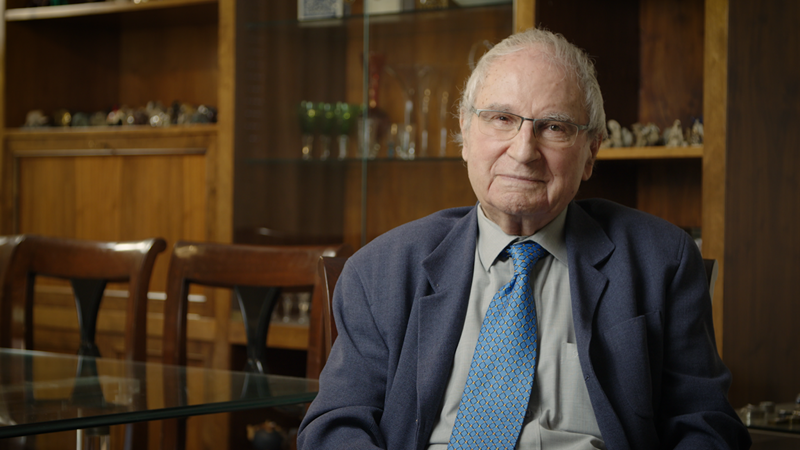Marcelo Munoz: Reinforcing the dialogue between China and Spain
Madrid is one of the most cosmopolitan cities in Spain, combining the charm of historical architecture and the energy of a modern metropolis. The city is the setting in which People's Daily Online UK interviewed Marcelo Munoz, a man who has worked for over 40 years to build closer relations between China and Spain. Munoz shared, "I'm considered half-Chinese since it's the country I know and have worked with the most after Spain." In 2012, Munoz founded Catedra China, an organization dedicated to promoting exchanges between China and Spain with hopes of increasing collaborative opportunities between the two nations.

Marcelo Munoz (Photo/Patrick Shead-Simmonds)
Munoz reflected on his early days in China, saying, "When I arrived in China in 1978, Deng Xiaoping's Opening Up policy had just started. Through doing business in China, I have been a direct witness of the transformation that China has undergone over the years. In my opinion and according to many political analysts around the world, this is the biggest transformation in history. In 1978, China ranked as the 120th most powerful country in the world; today, it stands as the second." Munoz praised that "China has become a global leader in technology and science, publishing more scientific innovations than any other country. It has also emerged as the world's greatest commercial power."
Over the last 46 years, Munoz has written many books and articles about China, transmitting his lived experiences in China to people in the West. "It has been an incredible experience to explore such a big country," Munoz said. He admires China's long-term vision, noting, "China has a system that works for future generations and endures over time."
In his books, Munoz often made the point that the West lacks an understanding of China, one of the oldest civilizations in the world. Currently, he is preparing for his fifth book, which will discuss how China can offer an alternative to our disorientated world. "The world currently is not governed by a leader. The West wants to govern, particularly the United States and the European Union, which are part of the NATO alliance. China has offered a new approach of peace through dialogue instead of war, which is very important." For Munoz, this alternative is rooted in Confucian philosophy. "The Chinese do not want conflicts or wars; they want to make partnerships and treaties with other countries through dialogue."
Munoz commented, "the 21st century is China's century. The Chinese policy presents an alternative and therefore we need China to participate in global governance." In a precarious world of geopolitical conflicts, Munoz emphasized that "it is very important to have peace, especially for young people. For peace to thrive, China must play an active role in global governance." Munoz called for continual cooperation between China and the West to build a more peaceful world.
Munoz considered that creating real dialogue between China and Spain requires an effective channel. Therefore, he created the Catedra China, a multidisciplinary think tank. "The Catedra China is now the most important platform for dialogue between China and Spain," Munoz explained. "It facilitates public debates among scholars and experts on China and supports trips for intellectuals and politicians to China, helping them gain a deeper understanding of the country. We also host delegations from Chinese companies and governments to improve their knowledge of Spain and the West."
Quoting Confucius, Munoz emphasized that "if you want to cross the river, you need to do it stone by stone. This is the purpose of Catedra China. If we can let scholars and politicians open their eyes and see the reality of China, dialogue between China and the West will be reinforced and we can understand each other better."

 Scan the QR Code
Scan the QR Code